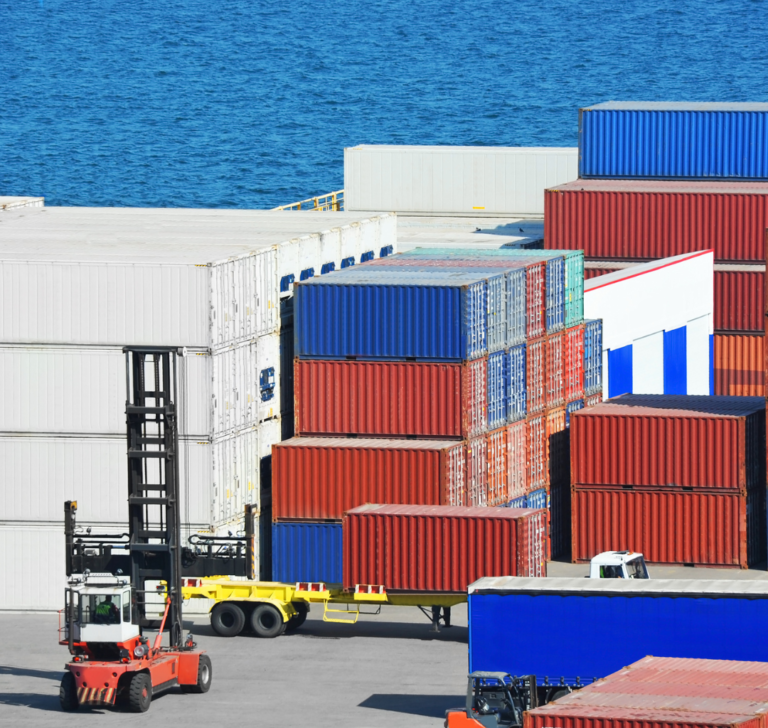With the new resolution, cargo transportation companies won't need to seek reimbursements from shippers
The Federal Maritime Commission recently announced a final rule aimed at simplifying international container billing practices. This addresses detention and demurrage fees that maritime carriers have been imposing, leading truckers to seek reimbursements from shippers.
Armand Patella, Executive Vice President of the Maryland Motor Truck Association, stated that the new FMC rule is extremely beneficial for intermodal motor carriers. On behalf of everyone, he added they are satisfied with the outcome. However, he clarified that this rule doesn’t eliminate detention and demurrage but rather redirects them.
Demurrage fees are levied on containers that remain at docks beyond the designated free time. On the other hand, detention fees, also known as daily charges, are applied once the free period after removing a container from the dock has expired.
The regulation will take effect on May 28, except for two forthcoming amendments. Instead of the previous 60-day period for invoicing these charges, maritime carriers must now do so within 30 days. Patella noted that by directly assigning this responsibility to contractors, it will provide cargo carriers with a better understanding of rates and services with their customers.

During the pandemic, these charges were significantly high for carriers and have become a major source of controversy within the supply chain, as mentioned by Jonathan Eisen, Executive Director of the Intermodal Motor Carriers Conference of the American Trucking Associations to Transport Topics. In 2022, when the Ocean Shipping Reform was passed, the IMCC and ATA urged Congress to include this clarification, as cargo carriers have faced significant charges from maritime carriers when containers are delayed.
With the new resolution, cargo transportation companies won’t need to seek reimbursements from shippers, which will alter the supply chain. The FMC stated that this new regulation will impact short-haul transportation companies operating at ports, as well as trucking companies tasked with transporting international containers from inland rail facilities. Eisen emphasized the importance of contracting parties collaborating closely.
Matt Schrap, CEO of the Harbor Trucking Association, noted that issues with billing practices have persisted for over 20 years. He highlighted that the key word in this resolution is responsibility, emphasizing that it’s not just about how much is charged, the type of equipment billed, or the allowable storage time. Clearing up misunderstandings about cargo transportation will be possible thanks to this new provision from the FMC.

What Truck Drivers Love Most About Their Job
Truck driving isn’t just a job; for many, it’s a calling that offers a unique blend of freedom, adventure, and independence. By Bob Dilliplaine, Industry

Frozen Roads After Bomb Cyclone: Black Ice, Record Snow and High Risk for Trucks
Frozen roads continue to disrupt freight transportation following the impact of a powerful bomb cyclone, leaving behind black ice, highway shutdowns, power outages, and dangerous winter driving conditions stretching from the Gulf Coast to New England.

Lunar New Year 2026: Ancient Traditions, Renewed Energy, and Massive Celebrations
Lunar New Year 2026 begins on February 17 under the sign of the Fire Horse and is marked by spiritual rituals, family reunions, and large-scale celebrations in both China and the United States, especially in California.

Freedom 250 Grand Prix: How Logistics and Transportation Will Power the Race in Washington
The first-ever IndyCar street race in Washington, D.C., scheduled for August 21–23, will headline the United States’ 250th anniversary celebrations — and it will trigger a massive transportation, freight, and urban logistics operation behind the scenes.

Groundhog Day: What It Means for Trucking When “Phil Sees His Shadow”
The forecast from America’s most famous groundhog is calling for more winter — and that’s an important signal for the trucking industry and cold-season route planning

Love on the open road: the best dating apps for truckers
If you’re looking for someone to go the long haul with, here are the best dating apps for truck drivers. They say love is everywhere…
